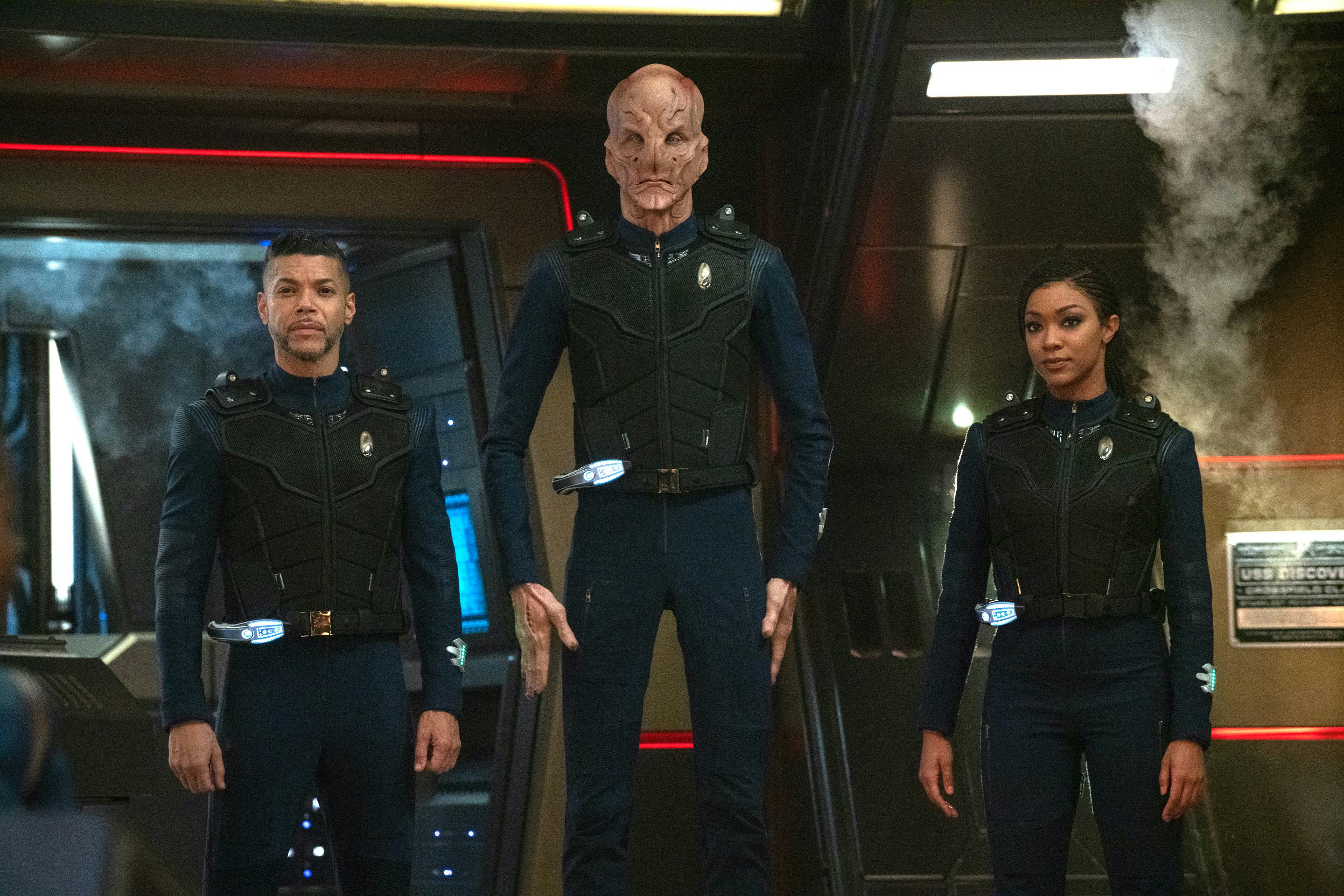
Season 3 of Star Trek: Discovery felt wildly different than the first two, and there's a pretty obvious reason why. Season 3 charted a new course into the 32nd Century, redefined the rules of the Federation, warp drive, starships, and even parallel universes. But week-to-week, Season 3 had one big thing in common with classic Trek, namely the standalone feel of each episode.
Discovery showrunner Michelle Paradise says that decision was intentional, and fans should expect a hybrid of episodic storytelling and serialized arcs in Season 4.
Ahead of the big Discovery Season 3 finale, Inverse caught up with Paradise to discuss season-long mysteries, who ends-up in the Captain's chair, and possible storylines ahead for Season 4.
Spoilers ahead for Discovery Season 3, including episode 13, "That Hope Is You, Part 2."
Discovery' Season 3 has focused on the crew's attempts to unravel the mystery of "the Burn," a galaxy-altering event that occurred roughly 125 years prior. But the difference in Season 3 was stark. Some episodes lingered on departing crew members. In "Unification III," Burnham returned to find the Vulcans radically changed. In "People of Earth," the planet which most of the characters called home briefly became a "planet of the week." There was even a two-parter set nearly entirely in the Mirror Universe. All along the way, there were "breadcrumbs" about the mystery of the Burn, but unlike so much prestige television, Discovery Season 3 went old-school, favoring episodes that focused more on characters than specific huge story arcs.
"Discovery has that sort of serialized-season-long story baked into its DNA," Paradise tells Inverse. "We also wanted to give the show more of an episodic feel, in Season 3, and we knew that going in. We got to explore a story of the week or a villain of the week. It gives us time to explore some of our characters who we normally we wouldn’t have time to explore."
After Michael Burham (Sonequa Martin-Green) finally assumes command of the USS Discovery in the last scenes of the episode, the music that plays over the ending credits of Discovery is the Alexander Courage-composed music for The Original Series. The ending of Season 3 isn't so much as a reset button, as it is a return to an open-ended format that made Star Trek great in the first place. "Even in our new iteration of Star Trek, it feels like we harken back to TOS and some of the other great series," Paradise says. "Part of what we do is honoring what gave birth to all of this."
Unlike previous Treks, Discovery has been playing musical chairs with the coveted Captain role since the very first season. In Season 3 alone, we saw two different characters in the captain's chair — Saru and Tilly — before the center seat was eventually given to Michael Burnham in the finale. Paradise says this was always the goal from the outset of the season.
"We knew going into the season that's where we wanted to end," Paradise says. "It was about taking her as far from that point as we could, so we could watch her journey into the captain's chair. So, at the beginning of the season, giving her that year away, and having her refuse that chair in Episode 3. And then, taking her to that crisis point in Episode 7, where she really has to decide if this is the world she wants. We've watched her over the course of three seasons, and this felt like the right time to do it. And we're excited to see what she does next."
By the end of Season 3, the crew of the USS Discovery probably is more diverse and representative of the entire spectrum of humanity than any other Trek cast has been before. In "That Hope Is You, Part 2," a new plot development allows Gray (Ian Alexander) to suddenly become visible to those who hadn't seen him before, thanks to an intuitive holographic program. The metaphor here is clear. Dr. Culber (Wilson Cruz) tells Gray that they will do everything in their power to make sure that he is "seen." As played by Alexander, Gray is played by Star Trek's first transgender actor, while his partner Adira (Blu De Barrio) is Trek's first explicitly non-binary character. Michelle Paradise wants fans to know that above all, these storylines will continue.
"Representation matters," Paradise says. "It matters to see a version of yourself on screen. It matters there are non-binary and transgender characters. It matters that there is a Black woman in the captain's chair. It matters that there is a gay couple on our show. We will continue to do that for the show, and the world we live in, but also, to honor the Star Trek legacy. And to be super clear, we will pay that moment off in Season 4. Gray will be seen. That promise will be paid off."
Star Trek: Discovery Season 4 is currently filming. Season 3 is streaming on CBS All Access.







